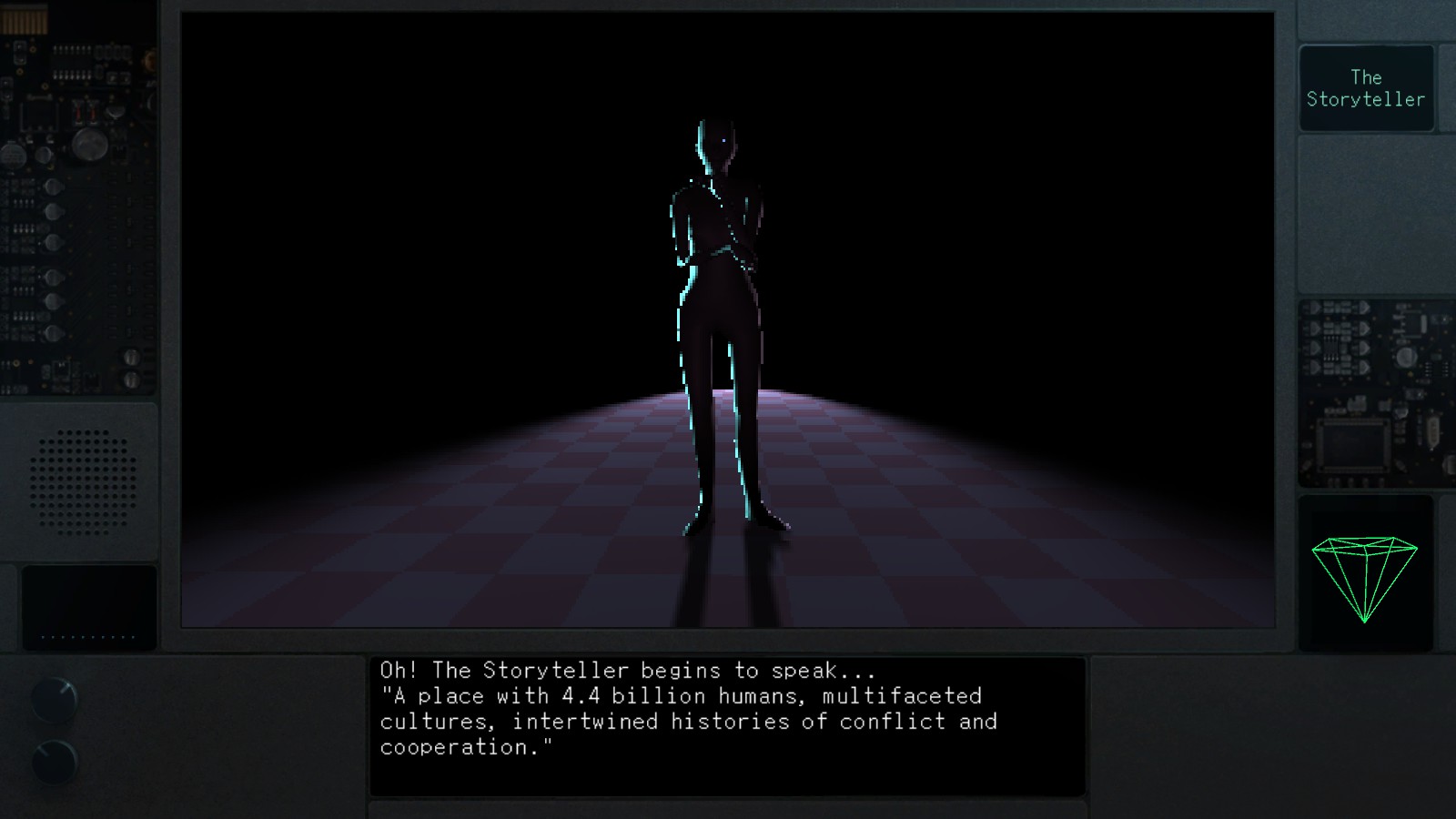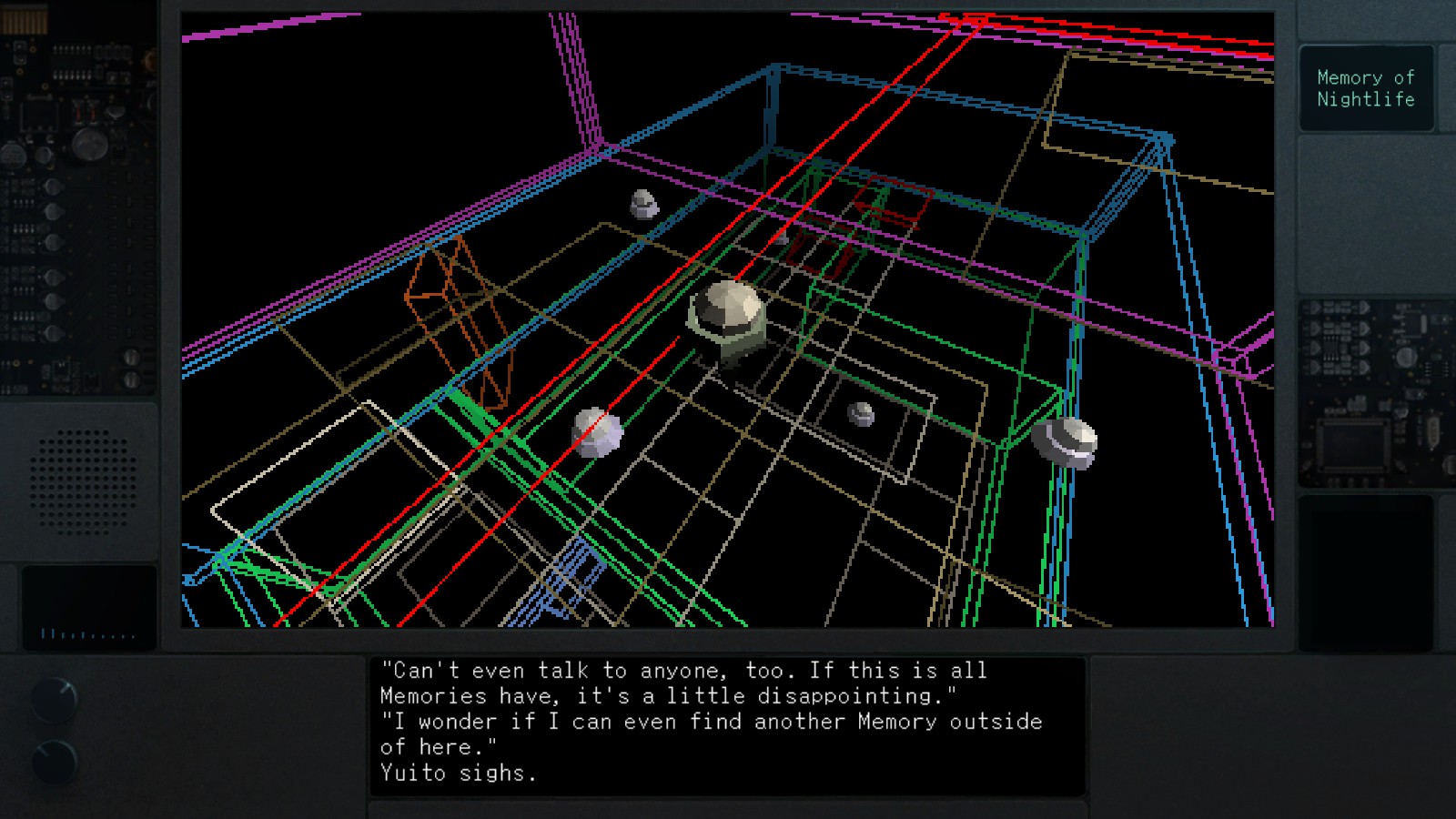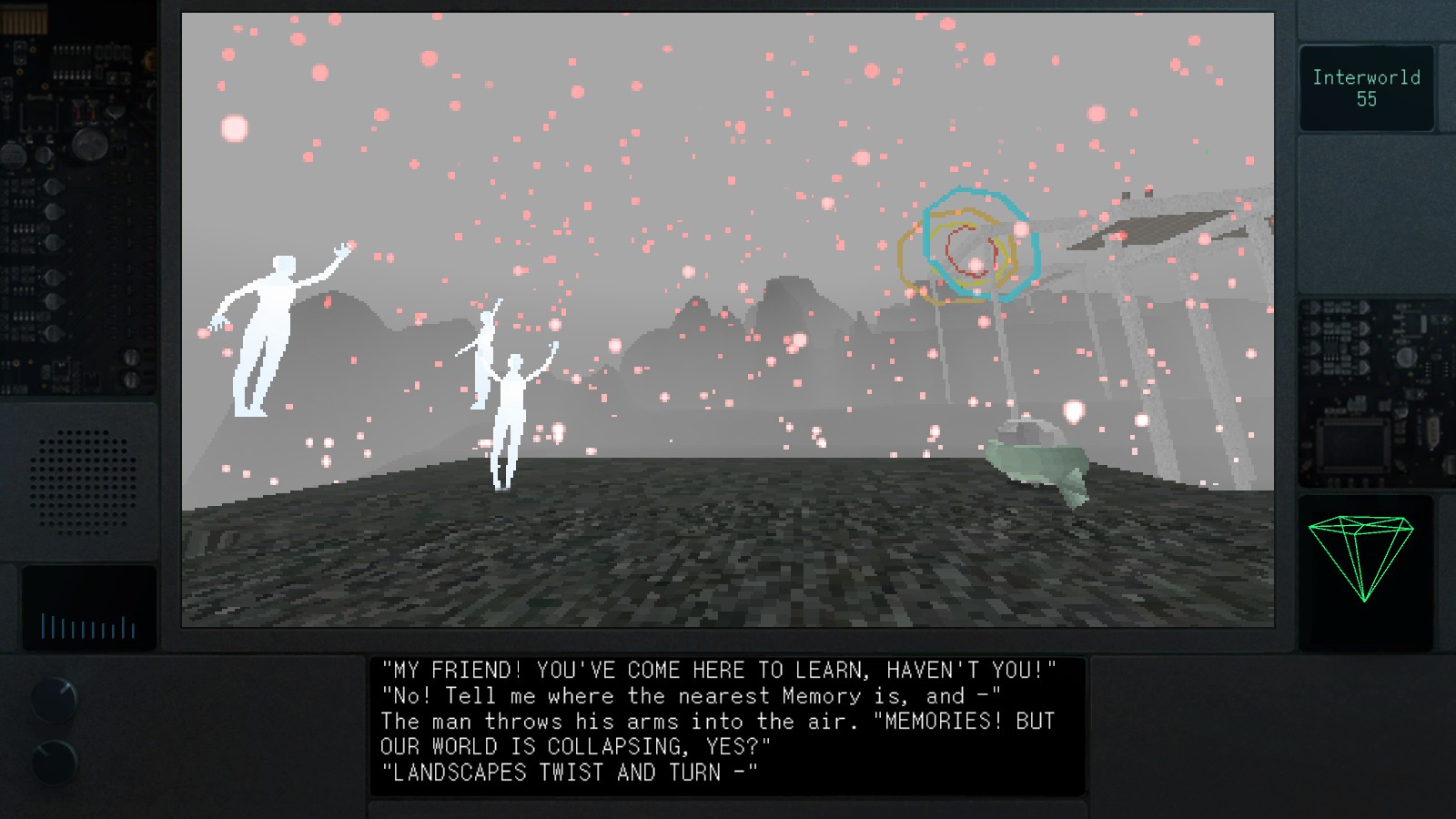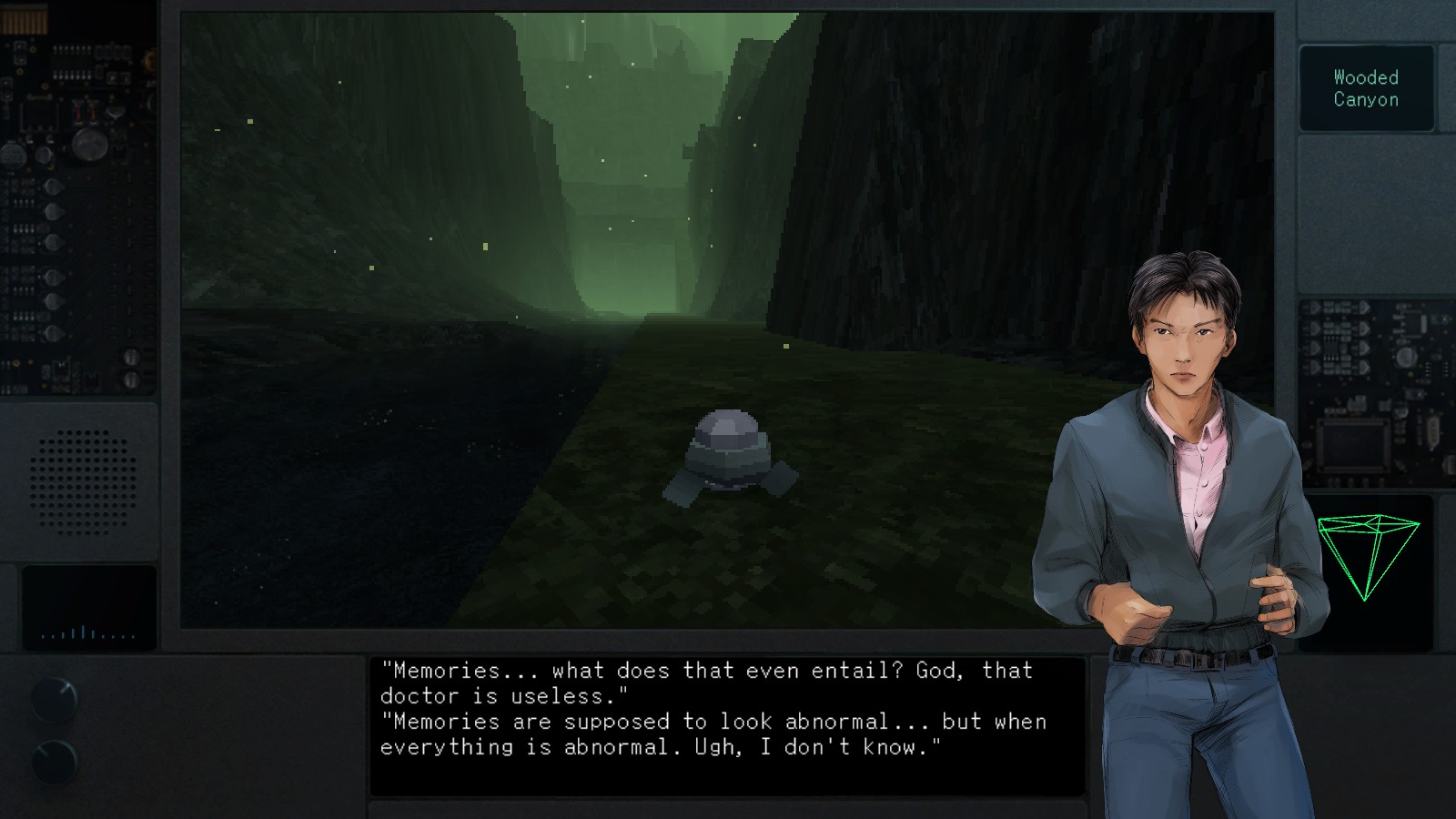A grave issue with photorealistic design in games is how the moment any imperfection pops on screen, the immersive experience which the developers are aiming to provide is shattered. Often a development team is intent on erasing the bridge between reality and fiction entirely, to bring the player into its world as an active participant. However, this method of purveying an experience strips away the author’s own identity, which can also subsequently spoil any sort of thematic focus in regards to storytelling.
All Our Asias immediately dispels any sense of realism, introducing its sole developer, Sean Han Tani, as The Storyteller, inviting the player to consider the cultural ruminations he himself has been inspired to create a game involving. For the sake of connection, a simulated relationship prompted through the computer screen, stretched between an artificial avatar and real-Life audiences.
Han Tani constantly reminds his audience they are playing a game, with its computer-setup borders and self-referential details simulating a direct contrast between the game’s 3D environments and the screen encasing them. All Our Asias is one of the most personal game narratives ever composed, and its commentary on moral upbringing as related to social bonds makes it all the more universal.
Vast, Imposing Landscapes

The game is, at its core, a journey through the dual minds of a father and son, connecting to each other through shared cultural experience as Asian-Americans. The intentionally low-poly, PSX-era graphics maintain a constant state of memory relapse; and there is a striking attention put forth towards forging vast, imposing landscapes to guide the player. An intense focus placed on the linear experience, and All Our Asias feel as though it is completely stripped away from any extraneous sequences or details which would otherwise sully the emotional impact.
The vistas themselves are refracted images of a world now only half-remembered. Cityscapes, mountain ranges, and forests appear massive and widespread, washed clean of detail and grime, idealised by their compartmentalization. Diverging pathways funnel through memories of past experiences, illustrating racism, gentrification, and post-adolescent trepidation as inciting instances of moral development. The protagonist, Yuito does not so much relive his father’s own struggles, but garners Life lessons from his subconscious, receiving parental guidance he missed out on during a fatherless childhood.
The game is above all else a moral compendium of histories, cautiously asking the player to consider the very existence of inherent human compassion. Skyscrapers loom over the Chicago setting, which Yuito eventually ascends to face the upper echelon of social corporate hierarchy; only to be disregarded by data and figures which deny his pleas for sympathy and charity. The young man eventually comes to realise the vital significance in building communal relationships through the individuals themselves. It’s the little people that matter, and our connections to each other go further beyond mere similarities in appearance or background.
A Moral Compendium of Histories

We are all human, and any notion of rising above the majority of others through societal structures or egotistical mindsets disbands the unity of the Human species. The developer hones in on this argument through occasionally frightening sequences involving computerized language and abstracted music, toeing the line separating the game from an outright horror title before calmly, astutely backing away.
Indeed, every minor detail (and lack thereof) within the game’s design strengthens the whole of Han Tani’s central purpose. All Our Asias does not so much visualize the father character’s memories of environments but rather suggests them, implying the feelings and attachment he has to these various landscapes — be them oppressive, or daunting, or welcoming, or beautiful. This deliberate lack of photorealistic artistry evokes a brilliant sense of the mind as a developing structure, and insists upon the fleeting instance of any moment.
Nostalgia is, after all, entirely predicated on the passage of time. The PSX-style artwork hearkens back to an era of burgeoning creativity within the games industry, visually connecting to the player by implicating their own sense of memory outside of the game. And All Our Asias is a game, one indebted to the medium’s capabilities of rewarding interactivity. It incentivises progression by offering different stages of achievement.
Connecting the Real to the Simulated

The penultimate goal of questioning Yuito’s father as to why he abandoned his family years ago is itself beholden to a natural inclination towards building relationships with others. This simplistic though understandable plot is legitimized by its overt interest in memory as a guiding force in upbringing, how our experiences shape us into the people we eventually become. Han Tani’s narrator thus serves as a fatherly figure to the audience, prompting them to consider their own moral beliefs and expand upon the impact their cultures have on them at any given moment.
Those fleeting moments are the basis of the linear path dictating All Our Asias. Throughout the brief venture, Yuito literally walks through the shoes of his father as he searches for compassionate understanding. Ultimately, he finds the means by which to be a better individual himself, and learns to shape his own experiences into lessons which may be utilized to teach others. Lineage is predicated on familial relationships, and often the absent can be the most guiding influence in a young man/woman’s Life. Yuito may not know who his father is, but by accepting it, he has learned a great deal more about his own self.



